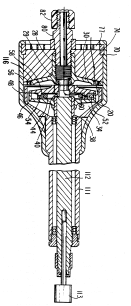
Air Turbine (ATT) sued Atlas for infringement of its patent on pneumatic turbine pencil grinder as well as Lanham Act violations and for unfair competition under Florida law. The district court dismissed the non-patent claims on summary judgment. At trial, however, the jury returned a verdict against ATT on patent infringement.
On appeal, ATT argued that the court should have granted a new trial on the patent infringement claim because of three “prejudicial evidentiary rulings.” Specifically, ATT complained that (i) its infringement expert was prevented from fully testifying (about a matter not disclosed under FRCP 37(c)(1)); (ii) certain co-inventor testimony was excluded because the co-inventor was not considered an expert; and (iii) an Atlas employee located in Sweden was not properly produced via teleconference because the court believed it lacked jurisdiction to compel testimony.
Applying 11th Circuit precedent that evidentiary rulings are only reversed for clear abuse of discretion, the CAFC affirmed. Finding that:
(i) A court may properly exclude expert testimony that is not disclosed in the expert report;
(ii) An inventor is not necessarily an expert — especially an expert on the accused device; and
(iii) Determining whether to allow testimony in open court via contemporaneous transmission from a different location is well within the discretion of the district court.
Non-infringement affirmed.
[Copyright 2005 Dennis D. Crouch – Originally published at www.patentlyo.com]